Battery powered landscape maintenance tools have improved massively over the past few years and even the hardcore petrol- and diesel-powered fans would have to acknowledge that “good quality” battery gear can compete with its traditional petrol and diesel rivals. Battery power is obviously the way of the future and with California banning the sale of petrol-powered outdoor machinery by 2024 makes me wonder that others might follow, and battery power might be the norm sooner than we think.
Whilst there are many commercial handheld battery tools on the market here, I don’t know of any other commercial battery zero-turn mowers, so I was super keen to give the Mean Green “Rival” a workout.
Mean Green have been manufacturing commercial Zero-turns in the USA since 2009, so this is not just a new product on the market, it has had some serious development over the years. Mean Green mowers are distributed here exclusively through Australian company ECOTEQ who have branches in every state with trained technicians and spare part backing.
At first glance the Mean Green Rival just looks like a tuff machine, it obviously resembles a conventional zero turn, but a closer look reveals many differences. As a comparison this model, the “Rival” is the equivalent to a 37Hp diesel machine, so it is no toy.
The construction material of the Rival is quite different to conventional zero turns, both the machine and the fabricated 60-inch deck are aircraft grade aluminium, so it is incredibly strong whilst also lightweight. The batteries, consisting of 11 individual cells are housed in a sealed compartment within the rear of the machine and barely protrude past the back wheels so no large overhang like conventional machines. This greatly reduces the footprint eliminating rear damage which is often caused when an operator misjudges. It also means that this large sit-on machine, if only about the same size as a stand-on zero turn, is great for transporting multiple units or freeing up valuable transport space.
My first questions were what is the battery lifespan and what is the runtime? I was very nicely surprised. The batteries have a lifespan around 9000 hours so I think it would be safe to say they could outlast the actual machine. Also, having 11 individual cells means that if one cell is showing signs of depletion it can be changed individually. The batteries have no memory, so they can be charged at any point whether fully depleted or partially depleted and a full charge takes 12 hours so easy to do overnight after a full day’s work. Runtime is the big question with any battery powered gear and the Rival will operate for seven hours on a full single battery charge. This equates to 15 acres per charge which is very impressive. Charge ports are located at the front and rear of the machine so either can be used.
The power and speed are something completely different to conventional zero turns. The Impulse Drive System gives instant power and at first you must be careful as it does 18.5 km/h and it gets there in 1.3 seconds, so if you push the control levers from neutral to full forward it stands up on the rear wheels and goes. It does take a bit of getting used to as the controls are so precise and light but after about half an hour of operation it was effortless. Hard to explain but conventional machine controls feel like you are pushing and pulling them to manoeuvre and the controls on the Rival feel like you are just guiding them, which makes them easy to get used to.
Of course, the benefits of greatly reduced noise, zero emissions, zero fuel costs and minimal maintenance costs would be attractive to anyone but it does come at a cost as these machines are quite a bit more expensive than their conventional opposition. The machine is so quiet, great for noise sensitive sites and public places as well as being easy on the operator.
Ever increasing fuel costs are a thing of the past as are the endless engine maintenance consumables such as air filters, spark plugs and oil filters etc. Another huge advantage is that there are no deck spindles, pulleys, or belts to worry about. No greasing of spindles, no belts, or pulleys to replace, greatly reducing maintenance costs. Rather than spindles and belts to drive the blades there are three electric motors attached to the top of the deck in the place of traditional spindles. The cutting blade attaches directly to the motors drive shaft, the motor requires no maintenance, so the only consumable is the blades which are well priced.
I was concerned about damaging a drive shaft/motor when the inevitable happens and accidental contact is made with a foreign object and the associated cost. Apparently, the shaft of the motor can be changed out of the motor separately and the whole motor unit is not much more in cost that a conventional replacement spindle. It is also much easier to change with a few bolts and an electric plug-in cable.
The deck fitted was a 60-inch rear discharge with a mulching kit fitted. It cut and mulched very well leaving no residue on dry medium length grass. A side discharge deck is also available for this machine, as is a 52-inch deck.
There are two blade speeds that are changed with a touch on the control panel screen to suit mowing conditions. The mower drive speed also has two settings changed with a touch on the screen as well. The touch screen allows the operator to also check battery charge, hours, any faults and set the cutting height. The touch screen allows heights to be changed in ¼ inch increments and the deck is lifted/lowered via an electric ram. Foot controls allow the operator to raise/ lower the deck with a tap on either side of a rocker pedal in increments or hold in place to raise or lower fully to the pre-set cutting height. Just above the foot operated deck lift are three lights which indicate blade operation to the operator. All green indicates cutting height and speed are correct for conditions, yellow lights indicate cutting height is good, but groundspeed is too fast and red lights indicate speed and height are incorrect for conditions, so it basically warns the operator if they are pushing the machine too hard.
The front castor wheels are TWEELS so no downtime with flats. A fully adjustable suspension seat with adjustable arm rests keeps the operator comfortable.
I have to say that I would much prefer to operate a Mean Green Zero-turn over a conventional Zero-turn as they are quiet, much more responsive in their controls and easier to manoeuvre. There is no compromise on performance or cutting quality and the minimal running and service costs are a great advantage. Ecoteq offer a 2-year limited mower warranty and a three-year limited battery warranty.



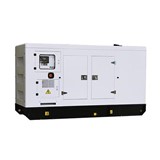
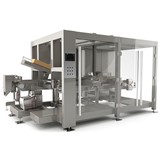
-160x160-state_article-rel-cat.png)

-160x160-state_article-rel-cat.png)
-160x160-state_article-rel-cat.png)
-160x160-state_article-rel-cat.png)
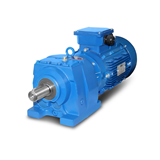

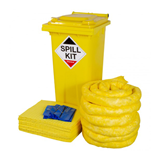



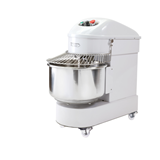

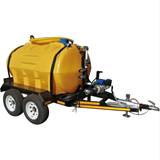



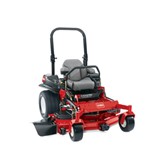
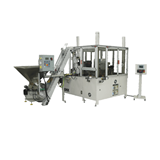

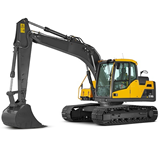
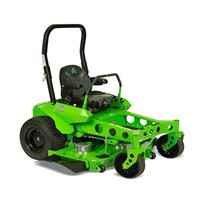

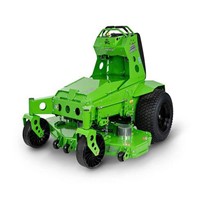
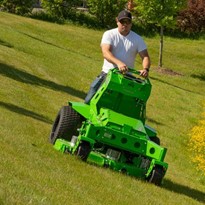
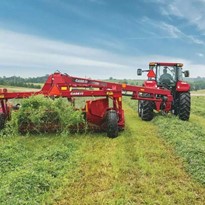
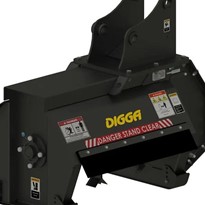
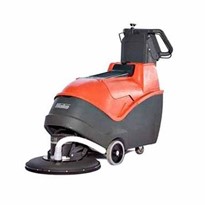
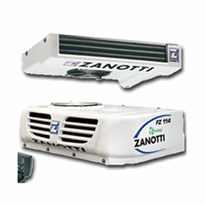
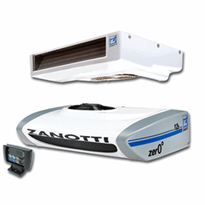
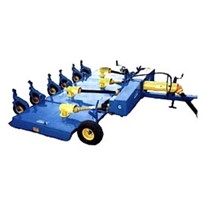
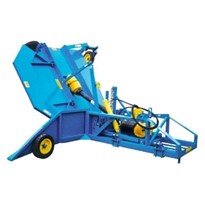
-375x300-205x205.jpg)
-375x300-205x205.jpg)